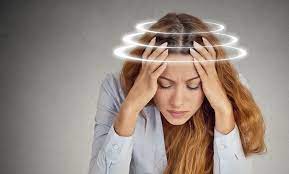Depression is a debilitating mental health condition that affects millions of people around the world. It can lead to feelings of hopelessness, loss of interest in life, and even suicidal thoughts. While traditional medication is often prescribed for depression, naturopathic treatment provides an alternative approach that focuses on natural remedies and lifestyle changes. In this blog post, we’ll explore some effective naturopathic treatments for depression that you may not have considered before.
Contents
What is the Naturopathic Treatment For Depression?

Depression is one of the most common mental health issues in the United States, and naturopathic medicine offers an alternative approach to treating this condition. Naturopathy is a holistic approach to healthcare that focuses on natural treatments and non-invasive therapies.
This form of treatment often incorporates nutrition, lifestyle modifications, natural supplements, herbs, homeopathic remedies, physical activity, and other non-invasive treatments to address the root cause of depression. Naturopathy also understands that mental health issues have a physical component as well as an emotional one. Therefore, naturopathic treatment for depression focuses on addressing both aspects of the disorder.
Types of Naturopathic Treatment For Depression

There are many different types of naturopathic treatment for depression, each with its unique benefits. Here are some of the most popular:
Herbal Remedies
Herbal remedies have been used to treat depression for centuries, and they can be very effective. St. John’s wort is one of the most well-known herbal remedies for depression, but many others can be helpful as well. These herbal remedies also make it possible to avoid the side effects that may come with taking antidepressant medications.
Homeopathic Remedies
Homeopathic remedies are based on the principle that “like cures like.” That means that a substance that causes symptoms of a disease can also be used to treat those same symptoms. Homeopathic remedies for depression are often very individualized, based on the specific symptoms that each person is experiencing.
Acupuncture
Acupuncture is a traditional Chinese medicine technique that involves inserting thin needles into the skin at specific points on the body. Studies have shown that acupuncture can be effective in treating depression, and it may also help to improve overall mood and energy levels.
Massage
Massage therapy can be an extremely relaxing and therapeutic experience, and it can also help to relieve some of the symptoms of depression. Research has shown that massage can help to reduce anxiety, improve sleep, and even increase levels of serotonin (a neurotransmitter that plays a role in regulating mood).
Nutrition
Eating a healthy diet is important for overall health and well-being, but it can also play a role in treating depression. Eating plenty of fruits and vegetables, whole grains, lean proteins, and healthy fats can help to provide the body with the nutrients it needs to function optimally. In addition, avoiding processed foods, sugary snacks, and caffeine can be beneficial for those suffering from depression.
Exercise
Another important aspect of naturopathic treatment for depression is to make sure that you are getting enough physical activity. Exercise has been shown to improve mood and reduce symptoms of depression, so it’s important to incorporate some form of exercise into your daily routine.
Stress Management
Stress can be a major factor in the onset and maintenance of depression, so it’s important to make sure that you are practicing good stress management techniques. This could include mindfulness practices, taking time for yourself, or simply getting enough rest.
Sunlight
An important part of naturopathic treatment for depression is to make sure that you are getting enough natural sunlight. Sunlight has been shown to help regulate serotonin levels, which can aid in the management of depression symptoms. It is maybe especially beneficial to get 15-20 minutes of natural sunlight each day, or as much time outdoors as possible.
Overall, there are many different types of naturopathic treatments for depression, and they can be used together or separately depending on the individual’s needs. By combining these treatments with other therapies, such as psychotherapy or medication, it is possible to find an effective treatment plan that works for you.
How Does It Work?
Naturopathic treatment for depression works by addressing the underlying causes of the condition. This approach is based on the belief that imbalances in the body’s systems are at the root of many health conditions, including depression.
To restore balance, naturopathic doctors use a variety of therapies, including dietary changes, herbal supplements, and homeopathic remedies. They also focus on lifestyle factors that can impact moods, such as sleep and exercise.
Depression is a complex condition, so treatment must be tailored to each individual. However, naturopathic treatment can be an effective way to address the underlying causes of the condition and help people find lasting relief.
What Are The Benefits?

Depression is a serious mental illness that can negatively affect how you feel, think, and handle day-to-day activities. While there are many conventional treatments available for depression, naturopathic treatment is a natural approach that can offer some unique benefits.
Some of the potential benefits of naturopathic treatment for depression include:
- Holistic approach: Naturopathic treatment takes a whole-person approach to health, which means that all aspects of your life – physical, mental, emotional, social, etc. – are considered when developing a treatment plan. This can give you a more comprehensive and individualized care experience.
- Natural remedies: Naturopathic doctors often use natural remedies to treat depression, such as herbs and supplements. This can be a safer and more gentle approach than taking synthetic medications.
- Mind-body connection: Naturopathic treatment recognizes the mind-body connection and therefore treats the whole person – not just the symptoms of their condition. This can provide lasting results and improved overall wellness.
- Emotional support: Depression can be a very isolating illness, but naturopathic doctors can offer much-needed emotional support during treatment. This can be an important part of recovery for many people suffering from depression.
- Helpful lifestyle advice: Naturopathic doctors can guide lifestyle changes that may help improve mood and reduce symptoms of depression, such as regular exercise and healthy eating. This advice can be very beneficial in the long run.
Naturopathic treatment is an effective way to address the underlying causes of depression, while also providing emotional support and helpful lifestyle advice.
Are There Any Side Effects?

The most common side effect of naturopathic treatment for depression is fatigue. This is because many of the herbs and supplements used to treat depression can have a sedative effect. Other possible side effects include:
- Dizziness: One of the most common side effects of taking herbs or supplements to treat depression is dizziness. This can usually be managed with rest or reduced dosages. Sometimes switching to a different herb or supplement can also help.
- Headaches: Headaches are another possible side effect. This is usually due to the body adjusting to changes in levels of neurotransmitters like serotonin and dopamine, which can affect mood. Taking breaks between doses can often help minimize this symptom.
- Nausea: Nausea is another potential side effect of taking herbs or supplements. This can usually be managed with smaller doses, more frequent breaks between doses, or switching to a different herb or supplement.
These side effects are usually mild and go away within a few days as your body adjusts to the new treatment. If you experience any severe or persistent side effects, be sure to contact your naturopathic doctor.
Conclusion
Naturopathic treatment is an increasingly popular option for holistically treating depression. It can help reduce symptoms of depression while also providing the patient with lifestyle modifications that promote healthy living and well-being. The benefits of naturopathic treatments are far-reaching and they can help to alleviate the psychological, physical, and emotional effects of depression, making it a viable option for those seeking alternatives to traditional medical approaches.
Ultimately, whether you choose natural remedies or medications for your depression treatment plan, make sure to talk with your doctor about all potential options so that you get the best outcome possible.
For more information, please contact MantraCare. Depression is a mental illness characterized by persistent feelings of sadness, hopelessness, and loss of interest in daily activities. If you have any queries regarding Online Depression Counseling experienced therapists at MantraCare can help: Book a trial Depression Therapy session


